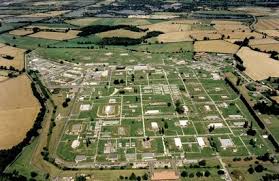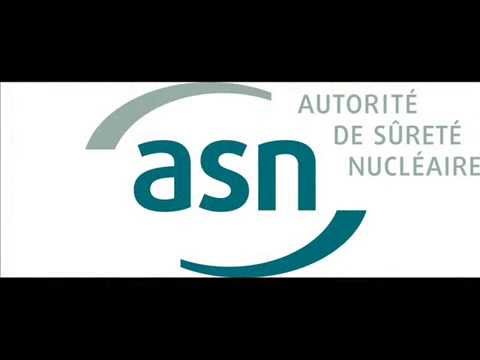
Blog
-
Geiger Readings for December 02, 2014
Ambient office = 83 nanosieverts per hourAmbient outside = 81 nanosieverts per hourSoil exposed to rain water = 101 nanosieverts per hourRed bell pepper from Central Market = 60 nanosieverts per hourTap water = 88 nanosieverts per hourFiltered water = 81 nanosieverts per hour -
Nuclear Weapon 110 – Problems at the Atomic Weapons Establishment in the United Kingdom
The Ministry of Defense (MoD) in the United Kingdom has just order a review of the costs and construction schedule for an important facility intended to enrich uranium to weapons grade for Trident nuclear submarines. Project Pegasus is the name of the billion dollar project being built at the Atomic Weapons Establishment (AWE) in Berkshire. There are serious concerns in the British nuclear industry about rising costs and construction delays. While the MoD and AWE play down the problems, one nuclear expert said that the problems were “extremely serious.” He went on to say, “Certainly, this is an issue that is going to run and run – and, don’t forget, the Government has a golden share, meaning it can re-procure the contract.”
A private sector consortium made up of Serco in the U.K., Lockheed Martin and Jacobs Engineering in the U.S. has a twenty five year management contract to manage the AWE. The “golden share” mentioned in the paragraph above refers to the fact that the U.K. Government has a small stake in the AWE. This golden share allows the Government to outvote the three corporations running the AWE if the national interest of the U.K. is at stake. The U.K. Government can also throw the three companies out the AWE at any time.
The AWE was privatized in 2000 and has had serious problems since then. The Serco corporation was fined about four hundred and forty thousand dollars because of an explosion at AWE. A source within AWE says that “there are always problems there, like corrosion, often caused by the age of the existing facilities.” A spokesperson for the AWE said that “The Pegasus project is kept under regular review. No decisions on changes to the scope have been made.” The MoD responded to a question from the Green Party by saying that the project must meet the departments “requirements while also achieving the optimum balance of performance cost and schedule”.
It has also been reported that the U.K.’s nuclear regulators have been having problems hiring enough inspectors. A research consultant named Dr. David Lowry has written to the Office for Nuclear Regulation demanding to know how they will deal with the shortage of inspectors. The ONR’s principle investigator admitted that there is “increasing competition for scarce nuclear-competent engineers and scientists across the sector, but recruitment is yielding results.” Dr. Lowry is very concerned that “If the Government expands the new build nuclear program, there would be more pressures on staff and even more stress on an already stressed nuclear regulator.”
Nuclear disarmament groups in the U.K. have questioned the need for the Government to spend more than three billion dollars in the next ten years on nuclear weapons when there are social welfare programs being cut. The U.S. is also embroiled in a debate over the need for spending billions of dollars on new nuclear weapons.
Atomic Weapons Establishment:
-
Radiation News Roundup December 01, 2014
Turkey’s Ministry of Environment and Urban Planning has finally approved the environmental impact assessment (EIA) report for the Akkuyu nuclear power plant project. world-nuclear-news.org
Islamic State has a ‘dirty bomb’ says British jihadi, amid claims 40kg of URANIUM was taken from Iraqi university. dailymail.co.uk
-
Geiger Readings for December 01, 2014
Ambient office = 65 nanosieverts per hourAmbient outside = 75 nanosieverts per hourSoil exposed to rain water = 82 nanosieverts per hourRed bell pepper from Central Market = 100 nanosieverts per hourTap water = 119 nanosieverts per hourFiltered water = 99 nanosieverts per hour -
Geiger Readings for November 30, 2014
Ambient office = 65 nanosieverts per hourAmbient outside = 75 nanosieverts per hourSoil exposed to rain water = 89 nanosieverts per hourRed bell pepper from Central Market = 111 nanosieverts per hourTap water = 71 nanosieverts per hourFiltered water = 56 nanosieverts per hour -
Radiation News Roundup November 29, 2014
All efforts have failed to stop very high levels of radioactive materials flowing into ocean from Fukushima. youtube.com
CDC official says that there is a public health emergency in the US from Fukushima radioactive material. enenews.com
Let’s finally get a permanent solution to nuclear waste. blogs.wsj.com
North Korea dangles a nuclear war against countries that are highly critical of Kim Jong Un’s regime. au.ibtimes.com
-
Geiger Readings for November 29, 2014
Ambient office = 105 nanosieverts per hourAmbient outside = 120 nanosieverts per hourSoil exposed to rain water = 115 nanosieverts per hourRed bell pepper from Central Market = 73 nanosieverts per hourTap water = 122 nanosieverts per hourFiltered water = 117 nanosieverts per hourBlack Cod – Caught in USA = 81 nanosieverts per hour -
Nuclear Reactor 180 – France Nuclear Agency Gets Clean Bill of Health from the International Atomic Energy Agency
France has invested heavily in nuclear power reactors and now gets about fifty percent of its electricity from nuclear reactors. It is difficult to pin down exactly how much electricity France generates and consumes from nuclear power plants because it also exports some of the nuclear generated electricity. The French government runs the EDF company which manages fifty eight reactors. Recently there have been calls in France to reduce nuclear power’s share of the mix of energy sources.
The French nuclear watchdog Nuclear Safety Authority (ASN) was just subjected to a review by the International Atomic Energy Agency. The review was carried out by twenty two experts from seventeen IAEA members countries. In general, the ASN was said to be functioning properly but there was a call for more funding and staffing. One big problem is the fact that many of Frances nuclear reactors are approaching their licensed life spans of forty years. The IAEA said that the ASN was satisfactorily managing the reactors now but that in the near future, it would have to increase staffing and funding to deal with the aging reactor fleet.
The head of the ASN “has regularly warned officials of the need to increase the authority’s budget and workforce, but has so far obtained only a fraction of its estimates.” Currently, the ASN has a workforce of one thousand. The ASN needs to increase staffing to twelve hundred as quickly as possible to deal with the need to review the status of reactors reaching the age of forty. The ASN also called for a new tax on nuclear operators that would be dedicated to nuclear safety.
An expert from the U.S. Nuclear Regulatory Commission who participated in the IAEA review said that a strong safety culture was a high priority for ASN workers. He said ” Safety culture has to do with having an organization where the members feel free to come forward with problems and voice those problems to management without fear of being retaliated against.”
I am sure that the same recommendations given to France should also be given to the United States with respect to its aging fleet of nuclear reactors. Many U.S. power reactors are reaching the end of their projected life spans and their operators have applied for license renewals. These reactors are breaking down and becoming more and more expensive to repair. The U.S. Nuclear Regulatory Commission should be spending more time and money on reviewing applications for license extensions. In addition, the U.S. has got to be more protective of and encouraging to whistleblowers in the nuclear industry. The treatment of whistleblowers has been shameful with many being fired and not given a chance to make their case. Nuclear power will be a factor in global power generation for decades to come and more time, funding and staffing will be absolutely necessary to prevent more catastrophic nuclear disasters such as Fukushima.
-
Radiation News Roundup November 28, 2014
Fukushima worker says that TEPCO is covering up how much Fukushima contamination is flowing into ocean. enenews.com
Fukushima fallout on vegetation in South Florida exceeded government notification limit by over 1,000%. enenews.com
Iran may say repeatedly that its nuclear program is strictly peaceful, but the country is not allowing the world’s top nuclear watchdog to confirm that assertion. finance.yahoo.com





